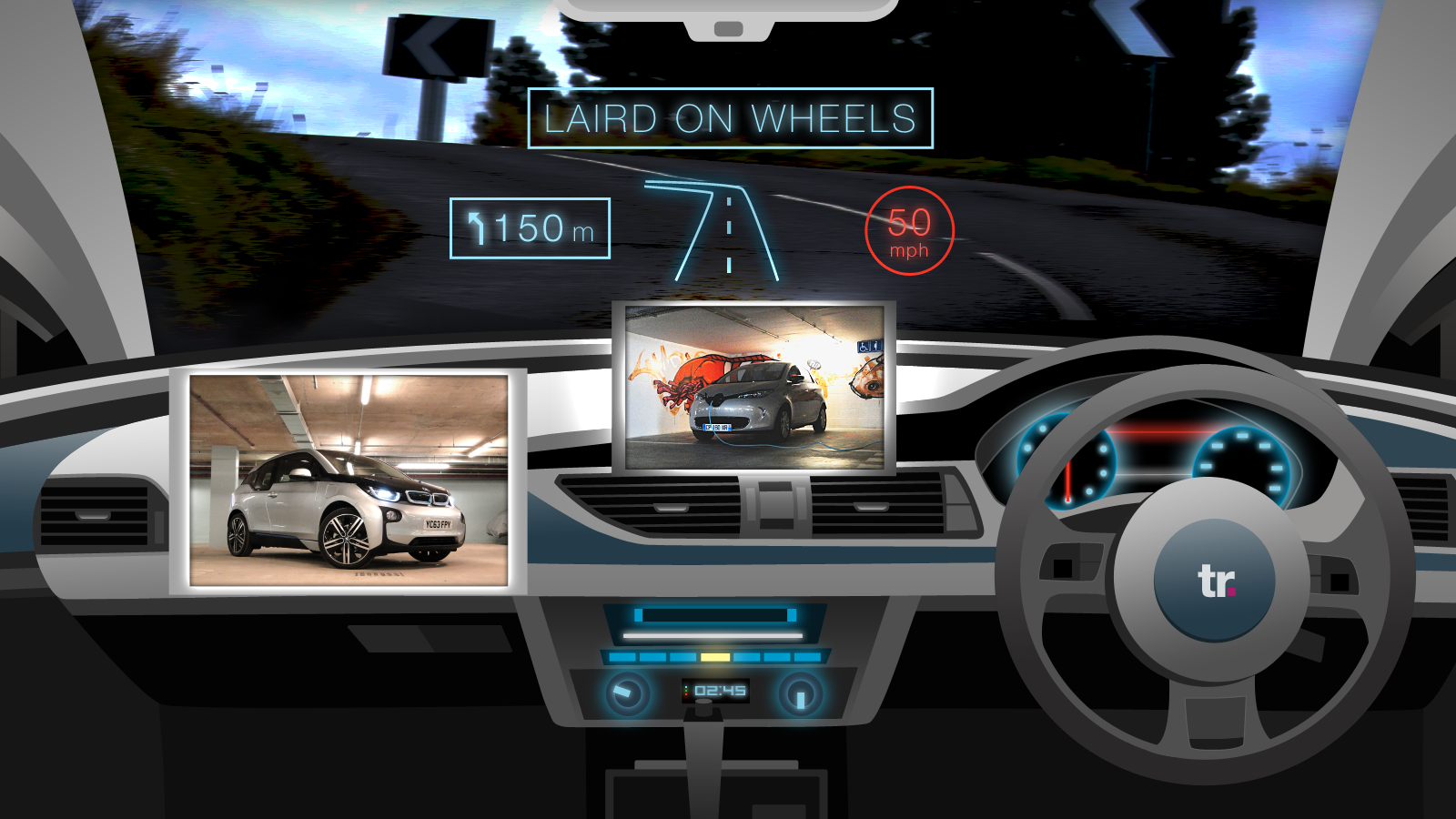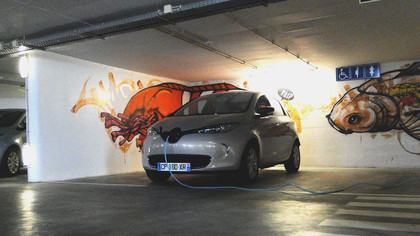Electric cars are ready for the big time and if you disagree you're wrong
The world is ready for electric cars, it just doesn't know it

It's not about the infrastructure, stupid. Or the range. Sorry, but somebody has to say it.
When it comes to electric cars or EVs, all this range-anxiety and fast-charging-network guff is completely missing the point.
It all boils down to some fundamental misconceptions which are in desperate need of spectacular implosion.
First, understand this. Existing electric cars with ranges of around 100 miles and charged at home without the need for complex and costly new infrastructure are already good enough to replace a large chunk of the conventional combustion car market.
If you disagree, it's because you're wrong. Here's why.
The sub-100-mile supermini
"One third of Ford Fiestas and Renault Clios are never driven further than 100 miles in their entire lives"
Let's begin with an interesting factoid. You'll all be at least vaguely aware of what's known in car industry parlance as the B-segment hatchback. Cars like the Renault Clio, the Ford Fiesta, the VW Polo, right?
Sign up for breaking news, reviews, opinion, top tech deals, and more.
Well, did you know that in the UK, for example, roughly one third of B-segment cars are manufactured, purchased, driven, resold, driven, repeat and rinse until the time comes to scrap the thing and during all this time - brace yourself for the punchline - never driven on a journey over 100 miles.
It also just so happens that the B-segment is the biggest seller in the UK. Actual sales numbers vary according to how you define a B-segment car. The Society of Motor Manufacturers and Traders (SMMT) puts what it calls 'mini and supermini' sales at 900,000 units last year.
However you actually slice it, we're likely talking about a six-figure number of cars sold annually and an installed base of millions that are destined to never engage in a journey over 100 miles. Meanwhile, pure electric cars sales flatlined at 2,500 units last year because of worries that they can't mimic cars they were never designed to replace. You have to laugh.
Anyway, what I'm getting at is that in terms of operating range, every one of those sub-100 mile superminis could be replaced by existing electric cars right now. They have sufficient range. That EVs can't replace a BMW 5 Series driven hundreds of miles daily is irrelevant. Next!
Charge!
If that's the range issue punted into touch, what about charging? Charging EVs if you live in a city centre can definitely be problematic. If you're based in a modern apartment block with under ground parking, it may be straight forward.
But on-street charging is a challenge. So what? Where EVs work best is in a suburban context. High density, but with small private drives and garages. And let me break something to you. That includes a very significant proportion of the UK's population.
Anyway, the idea here is that you use an EV like a smartphone. You plug it in overnight and use it during the day. What you don't do is worry about charging it during the day. You just drive it. Not very far and mostly stuck in traffic not using any charge.

Again, it's a bit like a smartphone. You carry it all day, but only actually use it in short bursts. Oh and incidentally, that overnight charging model means you don't even need to install any kind of fast charger at home.
Just plug it into a regular socket. The battery won't be completely empty and you'll top it up just fine as you sleep.
So, let's recap. The EV is not a long-distance car. And that's fine because nor are a large minority of B-segment combustion cars.
You're ready, already
"No need for epic 400-mile range upgrades or a bazillion pounds spent installing a network of silly-money fast chargers. We're ready for EVs as they are today."
You probably wouldn't even use it for a middle-distance commute. It's the kind of car you use for modest commutes or around town for school runs and local errands. And allow me to repeat myself. That's how millions of existing cars are used today.
So this still adds up to a large and viable market for existing EVs. No need for epic 400-mile range upgrades or a bazillion pounds spent installing a network of silly-money fast chargers. We're ready for EVs as they are today.
Actually, I'm not convinced that we will ever need EVs capable of long distances or a massive charging network. The way I see the future of motoring, cars will increasingly stratify into segments, each powered by the most suitable energy source.
The equivalent of the sub-100 supermini will be pure electric. The urban and suburban commuter might be a plug-in hybrid in the medium term. And eventually everything built to do longer distances will be fuelled either by hydrogen or synthetic carbon-neutral hydrocarbons.
I've got a take on which of the latter two I think makes most sense. But that's a story for another day. And yes, if there are breakthroughs in battery technology, EVs may branch out into different roles involving longer ranges.
And maybe one day, inductive charging loops will be built into every city centre side street. But I doubt it, because it's just not necessary.
All in the mix
Whatever, I see battery electric as just part of the mix, not the only energy source, for as long a time into the future that discussing what comes after may as well include the Mr Fusion infinite energy source. And, again, that's just fine.
Of course, you could question what benefit there is to having any EVs at all given the paltry contribution of renewables to the prevailing electricity production mix in the UK. And you'd have a point.
Not actually a point that stands up to close scrutiny. But a point worth discussing and debunking. But once again, just not today. We'll save that for another time.
For now, let's all agree that if there is a problem with EVs, it has bugger all to do with range, charge times or infrastructure. And let's get on with buying or rejecting EVs based on realities, not prejudices.

Technology and cars. Increasingly the twain shall meet. Which is handy, because Jeremy (Twitter) is addicted to both. Long-time tech journalist, former editor of iCar magazine and incumbent car guru for T3 magazine, Jeremy reckons in-car technology is about to go thermonuclear. No, not exploding cars. That would be silly. And dangerous. But rather an explosive period of unprecedented innovation. Enjoy the ride.